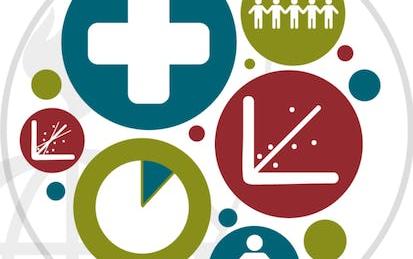

Our Courses

Quality Improvement in Healthcare
Health systems worldwide seek to prevent and treat disease and illness and improve well-being and quality of life. This specialisation focuses on improving the quality of the services provided by these systems. The specialisation content is based on the academic literature and research in quality improvement, comprehensively illustrated with real-life practical examples.You will hear from leaders in the field, including a range of guest speakers to support your learning.
-
Course by

-
 Self Paced
Self Paced
-
 English
English

Biostatistics in Public Health
This specialization is intended for public health and healthcare professionals, researchers, data analysts, social workers, and others who need a comprehensive concepts-centric biostatistics primer. Those who complete the specialization will be able to read and respond to the scientific literature, including the Methods and Results sections, in public health, medicine, biological science, and related fields. Successful learners will also be prepared to participate as part of a research team.
-
Course by

-
 Self Paced
Self Paced
-
 English
English

Hypothesis Testing in Public Health
Biostatistics is an essential skill for every public health researcher because it provides a set of precise methods for extracting meaningful conclusions from data. In this second course of the Biostatistics in Public Health Specialization, you'll learn to evaluate sample variability and apply statistical hypothesis testing methods. Along the way, you'll perform calculations and interpret real-world data from the published scientific literature. Topics include sample statistics, the central limit theorem, confidence intervals, hypothesis testing, and p values.
-
Course by

-
 Self Paced
Self Paced
-
 19 hours
19 hours
-
 English
English

Summary Statistics in Public Health
Biostatistics is the application of statistical reasoning to the life sciences, and it is the key to unlocking the data gathered by researchers and the evidence presented in the scientific literature. In this course, we'll focus on the use of statistical measurement methods within the world of public health research. Along the way, you'll be introduced to a variety of methods and measures, and you'll practice interpreting data and performing calculations on real data from published studies.
-
Course by

-
 Self Paced
Self Paced
-
 15 hours
15 hours
-
 English
English

Improving your statistical inferences
This course aims to help you to draw better statistical inferences from empirical research. First, we will discuss how to correctly interpret p-values, effect sizes, confidence intervals, Bayes Factors, and likelihood ratios, and how these statistics answer different questions you might be interested in. Then, you will learn how to design experiments where the false positive rate is controlled, and how to decide upon the sample size for your study, for example in order to achieve high statistical power.
-
Course by

-
 Self Paced
Self Paced
-
 28 hours
28 hours
-
 English
English

Text Retrieval and Search Engines
Recent years have seen a dramatic growth of natural language text data, including web pages, news articles, scientific literature, emails, enterprise documents, and social media such as blog articles, forum posts, product reviews, and tweets. Text data are unique in that they are usually generated directly by humans rather than a computer system or sensors, and are thus especially valuable for discovering knowledge about people’s opinions and preferences, in addition to many other kinds of knowledge that we encode in text.
-
Course by

-
 31 hours
31 hours
-
 English
English



